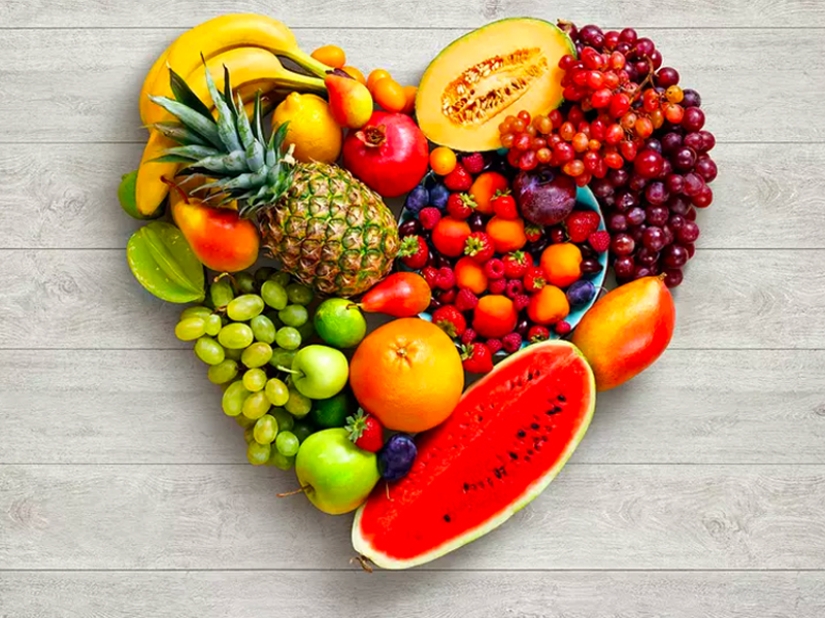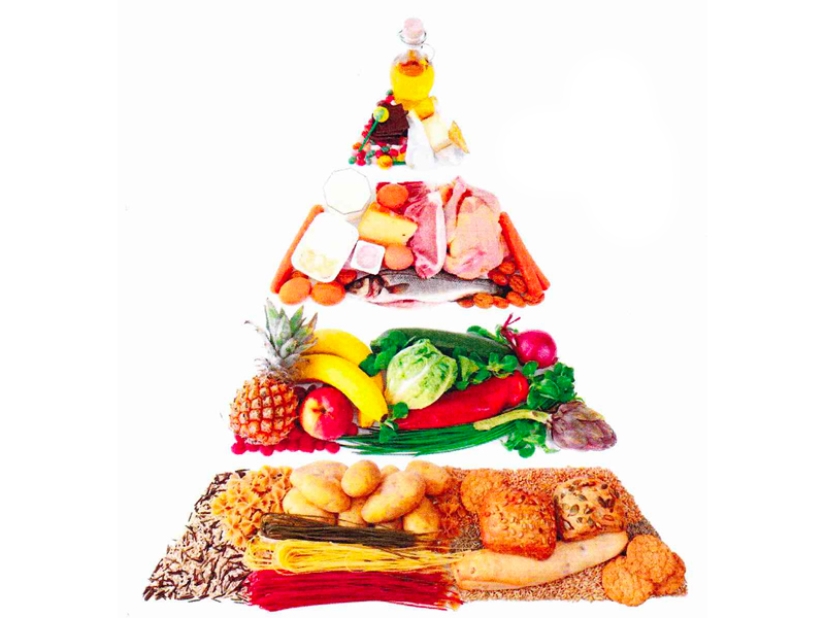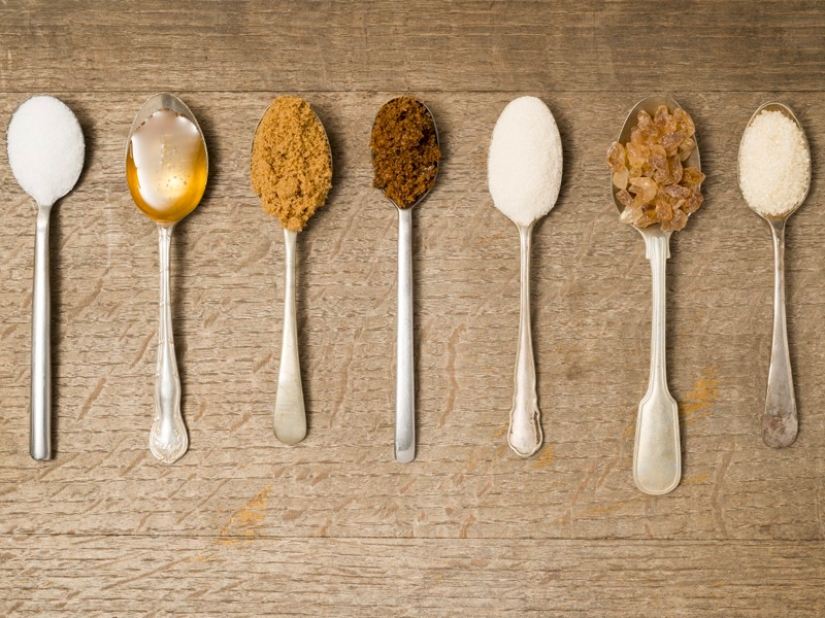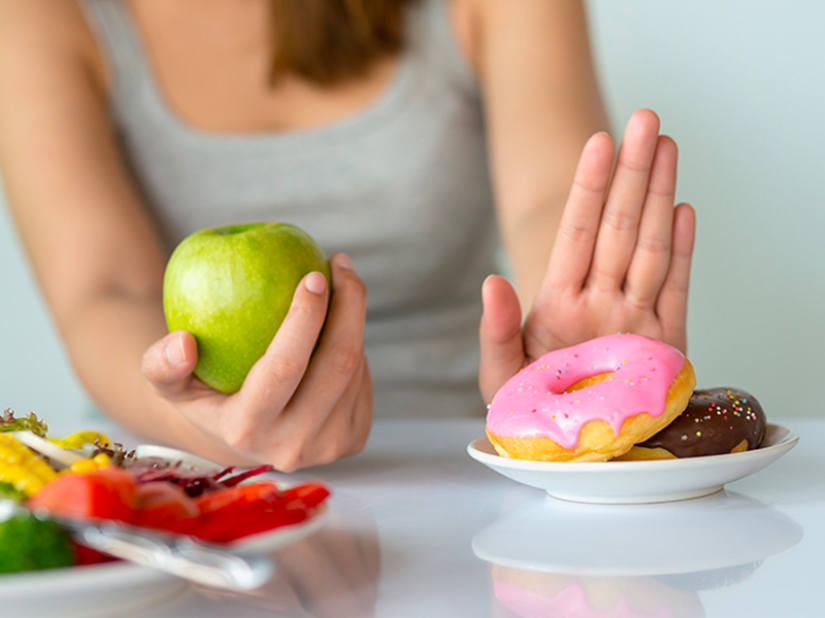Is sugar as bad as it is portrayed?
Categories: Food and Drinks | Health and Medicine | Healthy lifestyle | Nature | People | Society | World
By Vika https://pictolic.com/article/is-sugar-as-bad-as-it-is-portrayed.htmlIn this collection, we will try to answer a very controversial and widely scandalous question: is sugar really as bad as it is commonly thought? Is it true that eating sugar can cause diseases like diabetes and cancer? Does sugar contribute to weight gain and obesity? We will try to answer these and many other questions about the sweet product right now ...
11 PHOTOS

1. Does our body need sugar?
To begin with, it is worth figuring out what kind of sugar we are talking about. If we talk about sugar in its natural form, which is found in all fruits and berries, it is worth mentioning that along with it we also get dietary fiber and vitamins. And this is very important and useful for any organism! That is why artificially added sugar in food is most often called for to be limited, since it provides energy, but at the same time does not carry any nutritional value at all.

2. When we talk about sugar, we most often mean white granules of granulated sugar, which consists of glucose and fructose and does not contain vitamins, minerals, and dietary fiber. Yes, glucose is an important fuel for brain cells and for the body as a whole, but you can get it from foods rich in carbohydrates. For example, glucose is also found in bread, pasta, and root vegetables. Hence the conclusion: it is not necessary to eat sugar specifically for energy!

3. According to WHO recommendations, artificial sugar should not exceed 10% of total daily calories. For an adult, this is approximately 50-70 gr. sugar per day or one can of sweet soda.

4. Where do we get sugar from?
According to general research, about 50% of adults and children consume an inflated amount of artificial sugar per day. And indeed it is! The main reason for this may be the use of the so-called "non-obvious sugar", which is also found in sauces, cereals, dairy products, etc. Although for most, the main source of artificial sugar is still chocolate, pastries, and sweetened drinks.

5. How can you tell if a product contains sugar?
Sugar has many different names. For example, sucrose, dextrose, glucose, fructose, corn syrup, inverted sugar, agave syrup, isoglucose, or honey may be mentioned. This is important to understand and consider! Manufacturers often list the item "Carbohydrates, of which sugars ..." on the label, which indicates how much natural and artificially added sugar is contained in the product.

6. How does sugar work?
Today, it is very common among people that sugar can cause cancer and feeds cancer cells. Studies of this kind are not entirely accurate, because they are carried out on mice, which, in principle, receive such a dose of sugar that a person would hardly have mastered.

7. But so that this statement does not look like an excuse for sugar, it is worth saying that it does increase the risk of obesity and overweight. And this, in turn, is a direct threat to health. There is also no reliable scientific evidence that sugar alone increases the risk of type 2 diabetes or cardiovascular disease. Here, most often, the main culprit is the same excess weight.

8. As for sugar addiction, this definition is also not a medical diagnosis. This is because sugar (like any other food) does not cause such an increase in tolerance as drugs. It is true that some people have more cravings for sugar than others, but this cannot be called a medical addiction.

9. What about sugary drinks?
There is evidence that sugary sodas do increase the risk of type 2 diabetes, obesity, tooth decay, and many other diseases. Why exactly this happens is not clear, but one explanation is that liquid calories are not as effective at satiating as solid ones. Therefore, if you already drink soda, then it is better to choose a low-calorie option.

10. Does the amount of sugar we eat play a role?
A Swedish study of nearly 50,000 people from Malmö made very interesting observations in this regard and proved that nutritional balance is extremely important: among people who consumed more sugar per day, mortality indeed increased. But people who ate the least amount of sugar — less than 5% — also showed higher mortality than those who ate between 7.5% and 10%. We cannot conclude from this study that sugar is healthy, but in any case, the recommended 10% of artificially added sugar is not harmful in any way.

11. conclusions
From all the previously mentioned statements, there are several conclusions. Firstly, the risk of serious diseases such as cancer, diabetes, cardiovascular disease, etc. is not always a consequence of sugar consumption, but certainly a consequence of its ABUSE! And secondly, the complete rejection of sugar has the same detrimental effect on the body, no less than abuse.
There are no miracles, so the best recipe for a healthy and long life is still the same universal advice: eating a healthy varied diet, consisting mostly of fruits, vegetables, legumes, whole grains, olive oil, fish, seeds, and nuts, sometimes you can afford and a piece of chocolate or a muffin. Be healthy!
Keywords: Sugar | Diseases | Diabetes | Obesity | Healthy life | Health problems | People | Human body
Post News ArticleRecent articles

It's high time to admit that this whole hipster idea has gone too far. The concept has become so popular that even restaurants have ...

There is a perception that people only use 10% of their brain potential. But the heroes of our review, apparently, found a way to ...
Related articles

Porridge appeared in the human diet since ancient times, they help people get all the necessary nutrients for healthy living and ...

Our body constantly gives signals about the state of health. If you are attentive to the changes that occur with the body, you can ...

Now many men are coming home with the breath, all the reproaches of the spouse with dignity to answer — I don't drink, and brings ...

New Year's is a time to surprise and delight loved ones not only with gifts but also with a unique presentation of the holiday ...